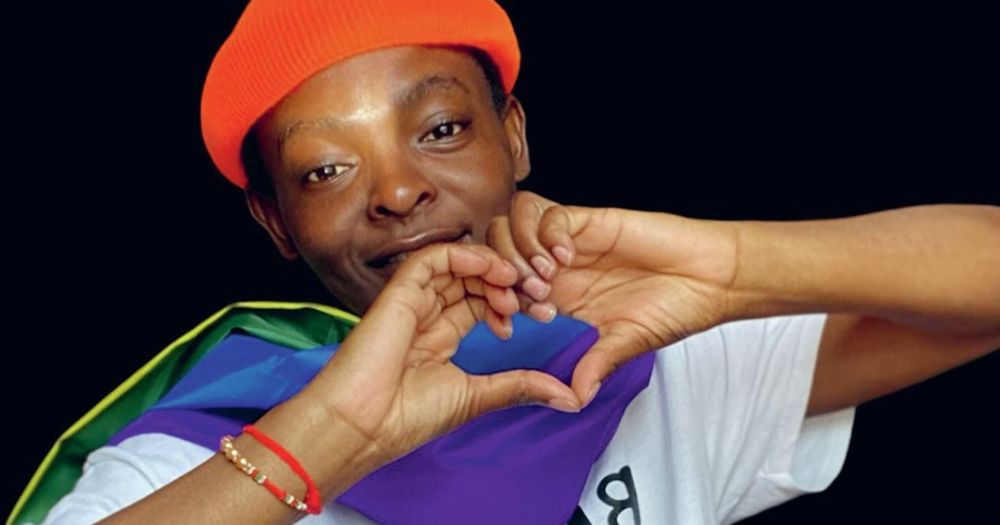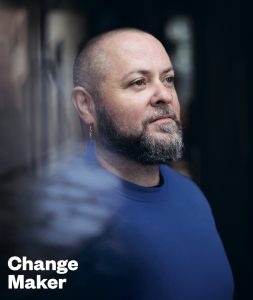How do you feel? This is one question that Beryl Ohas normalised hearing after being granted refugee status in Ireland. The answer disappoints most people because they expect her to be jumping up and down expressing happiness, but unfortunately that’s not the response she can give.
When I’m asked ‘how do I feel?’ I say that to a point I’m glad that my application only took seven months with a positive result, but if I’m to share half of what the immigration process entails, it leaves you traumatised to the point of not even celebrating the successful approval.
The reality is that it’s a trade for your soul in exchange for freedom.
Relocating to a new country as a lesbian woman from a country that criminalises same-sex relationships was an exciting opportunity for a fresh start, and the only way to stay alive.
There’s a huge rise in LGBTQ+ refugees in Ireland, yet many people have a black and white understanding of our experiences (“such a traumatic experience”, “you are safe now to start over,” etc.) without understanding the dehumanising immigration process.
The majority of LGBTQ+ refugees embody certain privileges; most times you can’t say that you miss your country or your chosen friends as people might find it impolite because you are supposed to feel like you shouldn’t miss home. This disregards the fact that, even with the darkest of experiences, there are always good memories too. People don’t understand that though refugees are forced to leave their countries, it doesn’t mean that they shouldn’t miss their families or connections they had growing up, chosen friends, family, culture, your language where you can tell a joke and someone gets it right away without the need for explanations. You can’t just pretend to forget all that given how hard it is to even be part of Irish cliques.
The asylum process is the most daunting stage for most LGBTQ+ refugees – or, as we call it, ‘Asyland’ – stuck in temporary accommodation centres and Direct Provision centres is a living hell. For many, it’s because you are stuck with a bunch of heterosexual refugees from different parts of the world with three quarters of them coming from countries that are highly homo/bi/transphobic and who would rather stay in that myopic mindset, unwilling to integrate to create a safe space for everyone. The worst part is for non-couples who have to share rooms with these homophobic people, promoting bullying and discrimination, which isn’t good for mental health.
My biggest culture shock during my Refugee Application Process in Ireland was that your story needs to be well prepared and tailored to western stereotypical expectations around homosexuality and queerness. Due to multi-layered marginalisation, the interview process shows how much the system needs to embrace diversity to eradicate its narrow view of what it is to be financially independent ‘out and proud’ in a non-western culture. Otherwise, it leads to many LGBTQ+ refugee applications being denied.
The interview process is the worst stage due to lengthy dehumanising questions such as when last you had sex, whether you enjoyed it, how many same-sex partners you’ve had, why you don’t look gay enough or lesbian enough, and your affiliation with organisations, LGBTQ+ groups and circles etc. This is all to reflect the globalised queer lifestyle steeped in liberal assumptions around sexual freedom and public visibility, with a vivid narration of your most traumatic homophobic experiences, which you must repeat over and over, reliving each moment as if it just happened.
These protocols only favour activists, or educated and successful LGBTQ+ refugees, discriminating against the less popular, antisocial, introverted LGBTQ+ individuals, LGBTQ+ Muslims who still register to be part of the Islamic community unable to fully be themselves and would rather not be seen going to gay clubs. Not to forget those LGBTQ+ refugees who come from countries where they’ve never celebrated Pride, or perhaps didn’t have LGBTQ+ organisations in their countries and therefore can’t provide that certain proof.
The use of stereotypical western imaging of LGBTQ+ sex, expressions of identity through rainbow-coded fashion styles is the framework within which ‘truth’ is legitimised and validated. These stereotypical expectations are centred towards producing a body that easily aligns with an easily readable matrix of westernised identity, which then becomes a humanitarian limit to refugee protection in Ireland.
This story originally appeared in GCN’s October 2022 issue 374. Read the full issue here.
© 2022 GCN (Gay Community News). All rights reserved.
This article was published in the print edition Issue No. 374 (October 21, 2022). Click here to read it now.
Support GCN
GCN is a free, vital resource for Ireland’s LGBTQ+ community since 1988.
GCN is a trading name of National LGBT Federation CLG, a registered charity - Charity Number: 20034580.
GCN relies on the generous support of the community and allies to sustain the crucial work that we do. Producing GCN is costly, and, in an industry which has been hugely impacted by rising costs, we need your support to help sustain and grow this vital resource.
Supporting GCN for as little as €1.99 per month will help us continue our work as Ireland’s free, independent LGBTQ+ media.

